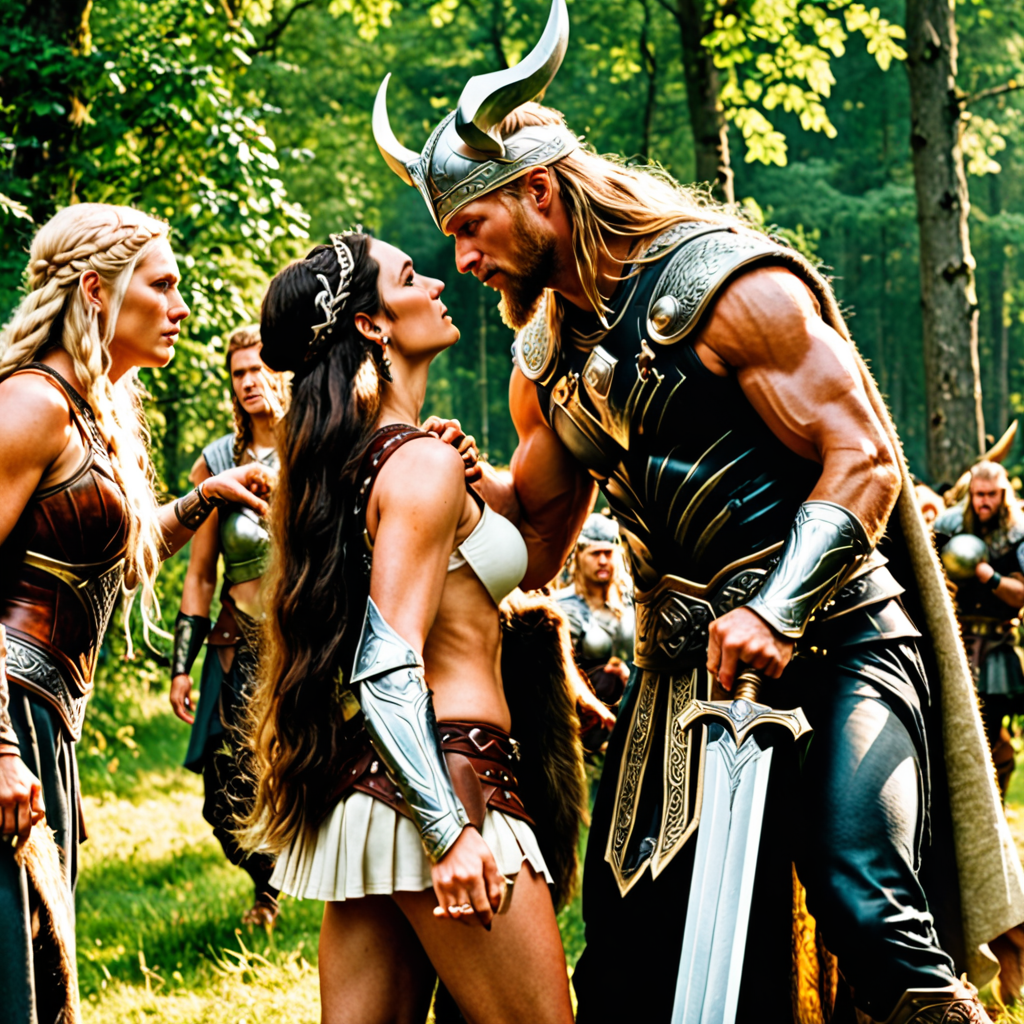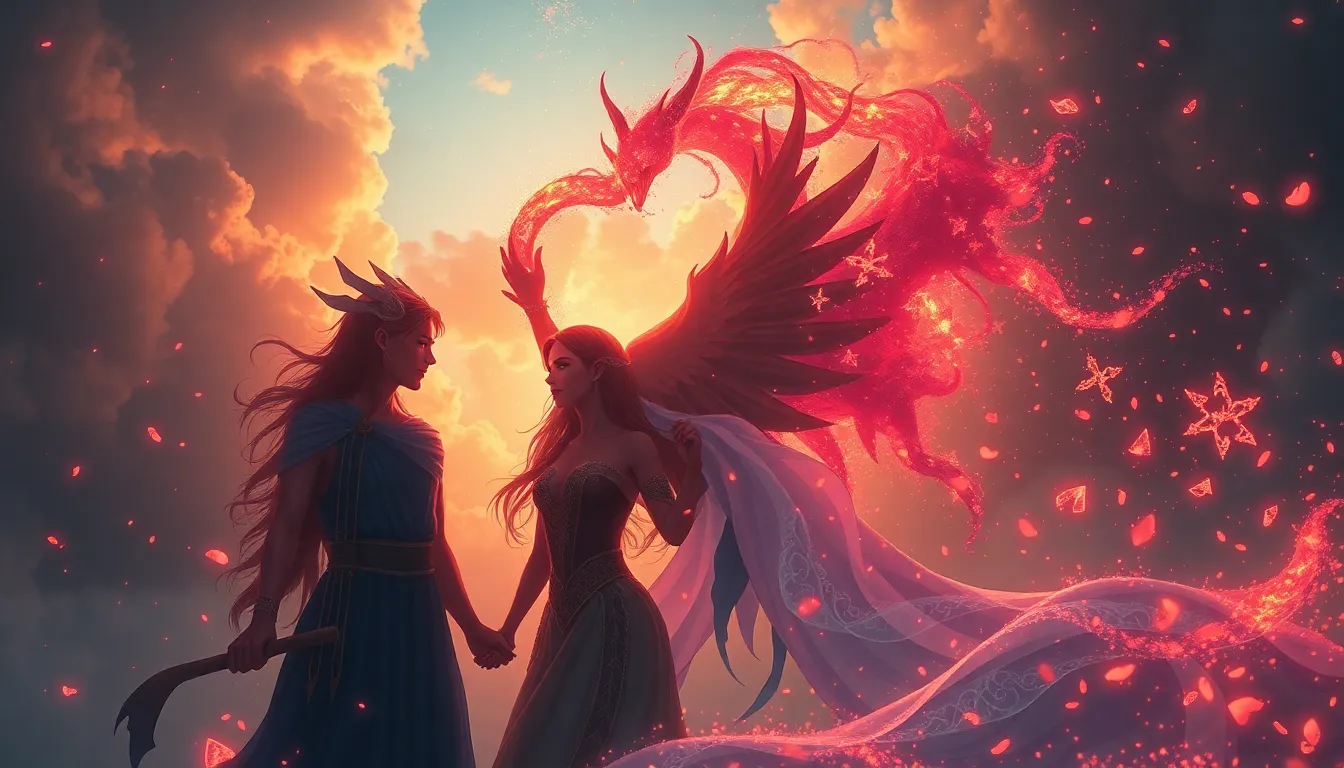The Influence of Norse Mythology on Norse Marriage and Family Customs
Weddings and familial ties held significant value in Norse culture, heavily influenced by the rich tapestry of Norse mythology. Let’s delve into how these ancient mythological beliefs shaped the marriage and family customs of the Norse people.
1. Mythological Basis for Marriages
In Norse mythology, the union of two individuals was more than just a social contract; it often mirrored divine connections between gods and mythical beings. For instance, the marriage of Odin, the chief of the Norse gods, to Frigg symbolized harmony and stability, ideals sought after in Norse marriages. Such mythological stories served as a guide for mortal marriages, emphasizing fidelity, mutual respect, and partnership.
2. Rituals and Traditions
Norse weddings were intertwined with rituals reflecting the mythological beliefs of the Norse people. One such tradition was the exchange of symbolic items like rings and swords, echoing the tales of mythical exchanges among gods. Furthermore, ceremonies often involved invocations of deities like Freyja, the goddess of love and fertility, for blessings upon the couple’s union.
3. Family Dynamics and Mythological Influences
The Norse myth of the creation of the world from the body of the giant Ymir instilled a profound value for family and kinship. This notion transcended into Norse family customs, emphasizing strong familial bonds and the importance of solidarity among kin. Family gatherings were marked by feasts in honor of gods like Thor, reinforcing values of unity and shared celebration within the family.
4. Legacy and Ancestral Connections
Norse mythology often depicted intergenerational relationships and the passing down of wisdom and legacy. This theme influenced Norse customs surrounding family inheritance, with a focus on preserving ancestral lands and wealth for future generations. Stories of legendary ancestors and heroes inspired Norse families to uphold honor, courage, and integrity as they carried forward their lineage.
Overall, the influence of Norse mythology on marriage and family customs was profound, shaping the values and traditions cherished by the Norse people. By aligning mortal practices with divine myths, the Norse honored their heritage and celebrated the enduring power of mythological narratives on the fabric of their society.
Frequently Asked Questions about the Influence of Norse Mythology on Norse Marriage and Family Customs
What role did Norse mythology play in shaping marriage and family customs?
Norse mythology had a profound influence on Norse marriage and family customs, dictating traditions, values, and rituals that governed these aspects of life.
What are some examples of Norse mythological elements in marriage customs?
Examples of Norse mythological influence on marriage customs include rituals like handfasting, symbolic acts related to gods like Odin and Frigg, and the significance of familial bonds represented in mythological stories.
How did Norse mythology impact familial relationships?
Norse mythology highlighted themes of loyalty, kinship, and honor, which were reflected in how families interacted and the importance placed on ancestry, unity, and mutual support.
Did Norse mythology influence gender roles within families?
Yes, Norse mythology often portrayed strong, independent female figures like Freyja and Frigg, contributing to a society where women held significant roles in familial matters and decision-making.



